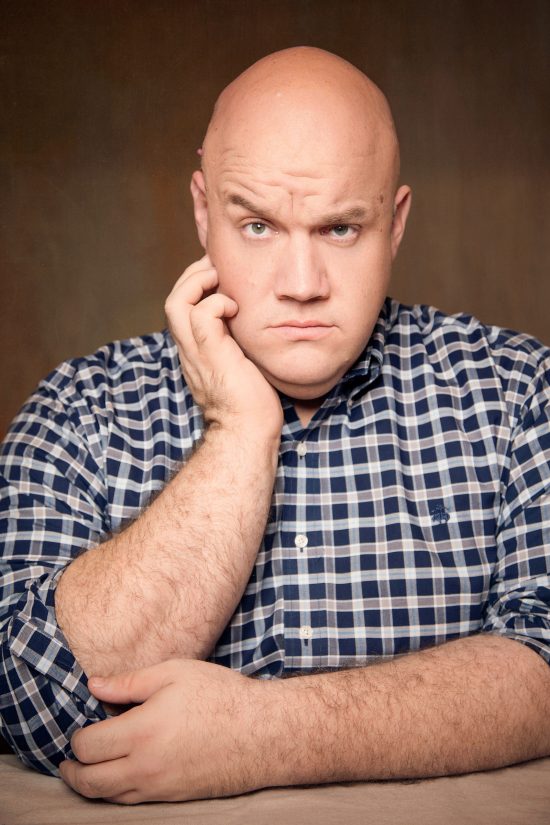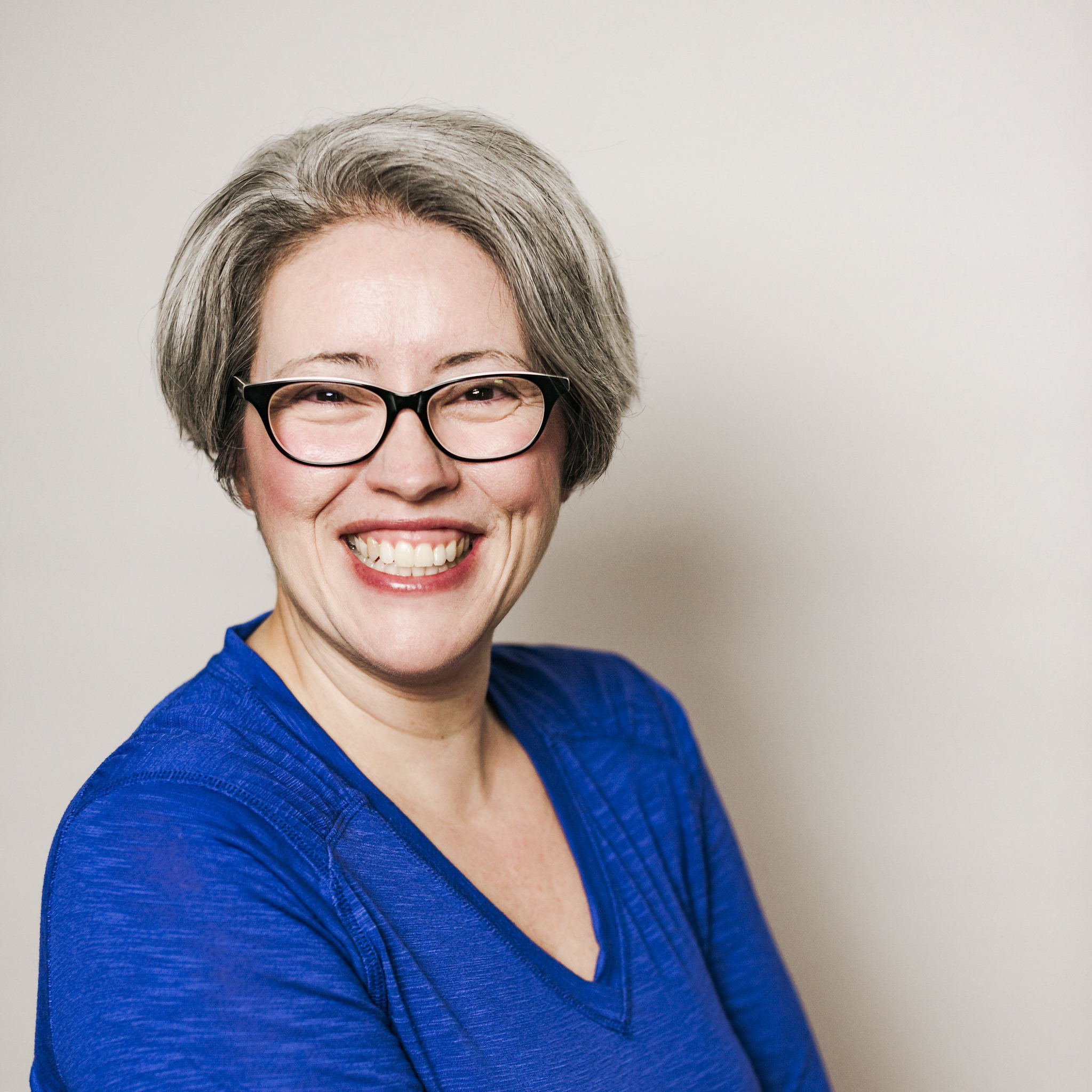
Guy Branum is a Goddess
June 27, 2022
Mindy Tucker
 Valerie Lopez
Valerie Lopez
 Sara Cline
Sara Cline
The Moontower Comedy Festival has returned in 2022 under the umbrella of Just For Laughs and blessed us with 10 days of comedy, film, live podcast, and afterparties. Comedy Wham is featuring our favorite conversations from this year's festival. Enjoy!
This final interview from our 2022 Moontower series is a special one. Of course, it’s special simply on the merits of our guest: Guy Branum, whose writing credits include Chelsea Lately, Fashion Police, and The Mindy Project. But perhaps what was most special was the conversation that unfolded between Guy and Valerie, which ultimately ended up being an insightful and important discussion of discrimination, diversity, and inclusion in our very own comedy communities. But more on that later. First, let’s talk Guy Branum.
Fascinatingly enough, Branum started out as a lawyer. See, law was a “safe,” and pragmatic career path, as well as a parent-approved one for Branum. Of the shift from law to comedy, Branum explains: “Part of, like, coming out of the closet and accepting that I wanted to lead a life that was my own was [me] saying, ‘No, I don’t want to do this. I want to be a stand up.’”
Branum actually knew early on during this life pivot that he wanted to be a writer, but he didn’t have the consistent confidence in himself yet to sustain it and complete a spec script or screenplay. Fortunately, stand up was the perfect intermediary to build Branum up to that kind of confidence. “… [In] stand up, you know, you only have to believe in yourself for, like, the length of an outgoing message,” Branum jokes. “Like, you just have to [fill] 45 seconds for a joke. And if you put enough of those together, you can do it.” Performing onstage proved an incredibly useful method for building his trust in his own instincts, as it allowed him to easily get outside input on the material that worked and that didn’t. Along the way, he fell in love with stand up in its own right, even as he landed his first writing gig for a cable network.
Having started stand up in San Francisco, Branum is quick to praise the comedy community there, which he describes as a beautiful medley of club comedy and alt comedy. Branum fondly recalls performing at The Punch Line, but also performing for alt audiences who appreciated more than just the cheapest jokes. On top of that, Branum articulates that San Francisco was “the only place in America other than New York at that point in time where you had sort of a semi-flourishing queer comedy community.” In fact, it wasn’t until Branum moved out of San Francisco and into Los Angeles that he realized, as he puts it, that “gayness was going to be an impediment to mainstream success in stand up.”
Funnily enough, one of Branum’s favorite facets of stand up is that “inherent in it is a lot of adversity.” Branum goes on to explain, “Stand-up audiences are more hostile to the performer than just about any other performance style. And it’s kind of what makes stand up good.” That being said, Branum recognizes that there is an added “institutional hardness that exists for women and people of color and for queer people that not everybody should have to slog through.”
Fortunately, in his 20 years of doing stand up (nearly 18 of them spent in LA), the comedy scene and its culture has shifted, making strides to encompass more diversity. Women and queer comics have appeared more and more on lineups, beyond the singular, tokenized positions they might previously take up on a show. “Like, when I started comedy, I was never on a show with [another] queer person unless it was an all-queer comedy show,” Branum states. “But I remember the day in like 2012 or 2013, that I, for the first time, was booked on a show and there were three gay comics on it. And, like, it just hadn’t crossed anybody’s mind.”
In the same vein, Branum lauds the importance of queer spaces for comedy. He recalls how wonderful it has been to experience queer open mics in recent years, seeing the comics getting to fail on their own merits, rather than due to institutional resistance. Of course, queer spaces are important not just for the comics, but for audiences too: Branum recalls an experience circa 2015 in which he clocked a group of gay men in the audience of a show, and he then watched as “every guy who got on stage said the word faggot.” Branum recounts how this moment was unfortunately a signal to the queer audience members “that their presence is conditional — that … if they want to be here and enjoy the show, they also have to be humiliated a little bit.” As the culture continues to shift, Branum believes that queer audiences are slowly coming to realize “that comedy that isn’t drag, that isn’t explicitly ‘queer comedy’ can be for them.”
Branum also recounts some of his unfortunate firsthand experiences of that “institutional hardness” for gay comics. He started on Chelsea Lately in 2007, and no stand-up manager was interested in representing him. Finally, in 2013, he had to actively ask and convince a manager to represent him based on his demonstrated income. It wasn’t until 2015 that his current manager saw Branum at a festival and approached him to represent him. Now, Branum is pleased to see queer comics backed by mainstream managers, but he admits his frustration that even as recently as 2015, he was being passed up by reps despite making consistently good money, meanwhile “nice, attractive, straight white guys” with little money to show from stand up were landing great reps “because people understood where [they] could go. People didn’t understand where I could go,” Branum states.
The same kind of structural discrimination could be found in the writers’ rooms, too. As Branum worked on Fashion Police (you’ll have to listen to the podcast to hear his personal Joan Rivers stories), he watched other roast-style shows failing to look for the writers that could perhaps fit those roast writing roles best — women, queer folk, and POCs. “And things are better [now],” Branum concedes, but he believes that even as diversity has become more of a consideration in employers’ minds, the methods taken so far to find and position those people have not been given as much thought and care as they truly need.
Interestingly enough, Branum’s first album came after 13 years of doing stand up. What was the lynchpin, you ask? The festival scene — from Bridgetown to High Plains to our very own Moontower. It was these environments that introduced him to a whole new generation of comics, as well as to comedy record labels who were keen to encourage him. Unfortunately, as proud as he was and is of that album, the following year Branum faced a pretty devastating rejection from Comedy Central. This blow was quickly coupled with another slew of emotions as the 2016 election concluded. “I truly didn’t know what I was supposed to be doing or saying as a comedian, and I felt really lost,” Branum admits. “… I just feel like I was in the wilderness for, like, six years.”
“It was only in sort of, like, the last year that I was like, ‘I have to — I have to get over this hump, but I need to start finding material that I love again, and figuring out what my perspective is, what I need to say,’” Branum muses. It turns out that the pandemic, too, was actually a much-needed kick in the pants to finally let go of old material. That being said, Branum is quick to caveat that rediscovering his spark was not a passive, magical process: “I had to go and find the spark,” he says.
Perhaps in those tough times, it helped for Branum to lean on the mythological story that informs the title of his book, My Life as a Goddess. The story in question is one that Branum would often tell his friends when they were feeling defeated: a story of Leto. “… Some peasants are mean to her, and she gets really hurt,” Branum explains. “And then she’s like, ‘Oh, shit, I’m a goddess.’ And she turns them all into frogs.”
Fortunately, now goddess Branum gets to work on projects that allow him to flex and showcase as much of himself as possible. After all, stand up is all about wanting your voice to be heard, and Branum feels that his voice has truly gotten to shine through projects like Talk Show: The Game Show, writing for The Mindy Project, and, most recently, working on Billy Eichner’s upcoming rom-com: Bros (which has an all-queer cast!).
Branum’s future can probably best be forecasted by, well, Branum himself: “Whatever I do, success or failure, it’s going to be flowery and fun. It’s going to have lots of good times,” Branum says. “And I’ll enjoy it, regardless of whether the universe decides to enjoy it back.” And that’s exactly the kind of goddess energy we should all be taking into the future. Everything else can be frogs.
Follow Guy
- Website — guybranum.com
- Twitter — @guybranum
- Instagram — @guybranum
- Facebook — Facebook.com/Guy.Branum
- Youtube — Youtube.com/GuyBranum
Guy can be seen, heard, and read:
- Movies
- Bros — Starring Billy Eichner (Scheduled Release September 2022)
- No Strings Attached — Starring Natalie Portman
- Book — My Life as a Goddess
- Other Writings
- Slate.com
- The New York Times
- Album — Effable
- Podcast — Pop Rocket
- TV (Appearances/Writer)
- Talk Show: The Game Show (TruTV)
- The Mindy Project
- Chelsea Lately
 Valerie Lopez
Valerie Lopez
 Sara Cline
Sara Cline

